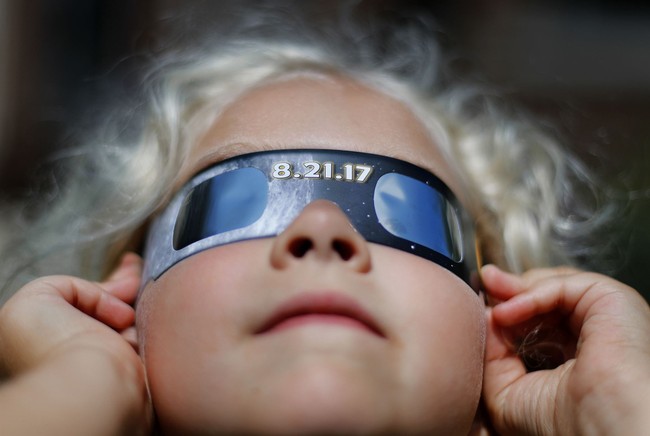
A total solar eclipse will happen on April 8. Two counties in Texas have issued a disaster declaration as officials prepare for the influx of people expected to come and observe the event.
On Friday, Travis County (Austin) took what is described as a drastic measure in preparation for the crowds of stargazers coming to Texas to watch the total solar eclipse. Travis County Judge Andy Brown issued a disaster declaration. The anticipated crowds will increase traffic, put a strain on first responders and hospitals, and clog roads on the days before the eclipse and on the day after the once-in-a-lifetime event.
Travis County is situated near the centerline of the eclipse’s narrow path of totality. It’s a major event not just for local Texans but for tourists, too.
“This disaster declaration will allow our first responders and public safety officials to better manage traffic and crowds as we anticipate the population to potentially double in size, and we want to ensure everyone can enjoy the total solar eclipse in Travis County,” Brown said in a statement.
A disaster declaration allows the county to take additional steps to ensure the safety of county residents and visitors. Residents are being advised to fill their car’s gas tank and buy groceries ahead of the eclipse to avoid crowds. Get errands done before the crowds begin to arrive or plan to run errands after the eclipse event.
“We can’t emphasize this enough,” officials wrote in a statement. “Please expect increased traffic on April 8 and the weekend before. Reschedule appointments, run errands another day, and stay at or near home to watch the eclipse.”
April 8 falls on a Monday. People will arrive in the Travis County area for a long weekend. Millions of people are expected to come to Texas for the eclipse. Day passes on Friday were completely sold out to watch the eclipse from Texas state parks in the Hill Country region. This reaches into the western portions of Travis County.
Travis County requires private property owners in unincorporated areas of Travis County to notify the county if they plan to host a gathering with more than 50 people in attendance to watch the eclipse.
Another county, Bell County, announced it issued a disaster declaration on February 21. It is also in the path of totality. The county expects its population of 400,000 to double, or maybe triple, for the eclipse. Some schools in the county have canceled classes that day.
The total solar eclipse is a big deal because it is so rare. The shadow of the moon will throw a narrow strip of land into darkness in the middle of the day. Millions of people will have access to see it happen.
It’s an exciting event.
This total solar eclipse will fall over more places in the United States than the total eclipse before and after it. The broad length of the path of totality is much wider than it was for the eclipse in 2017 according to NASA.
You don’t have to live in the path of totality to see the eclipse. 99% of people in the United States will be able to see the partial or total eclipse from where they live. Every state, plus parts of Alaska and Hawaii, will experience at least a partial solar eclipse.
